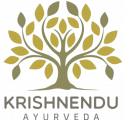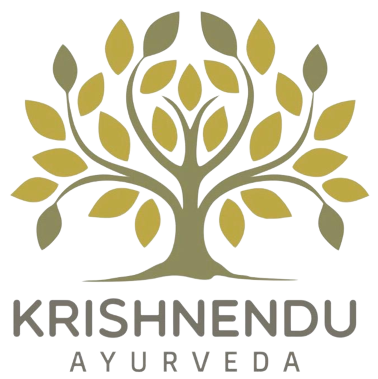PCOD in Ayurveda
Ayurvedic Treatment for PCOS/PCOD in Kerala, India
Polycystic Ovarian Syndrome (PCOS), also known as Polycystic Ovarian Disorder (PCOD) is a hormonal disorder affecting 5% to 10% of women in the age group 12–45 years. In Ayurveda, PCOS comes under the chapter of Yoni Vyapat and is one of 20 diseases in that section.
It’s often characterized by excess androgen (male hormone levels) and menstrual periods that are either infrequent or longer than typical cycle length. With PCOS, ovaries may develop follicles, which are little collections of liquid, and they may fail to routinely release eggs.
Causes for PCOD
Factors that might play a role include:
Heredity: Research suggests that certain genes might be linked to PCOS.
Excess androgen: The ovaries produce abnormally high levels of androgen, resulting in excess hair growth and acne.
Excess insulin: Insulin is the hormone produced in the pancreas that allows cells to use sugar, your body’s primary energy supply. If your cells become resistant to the action of insulin, then your blood sugar levels can rise and your body might produce more insulin. Excess insulin might increase androgen production, causing difficulty with ovulation.
Low-grade inflammation: This term is used to describe white blood cells’ production of substances to fight infection. Research has shown that women with PCOS have a type of low-grade inflammation that stimulates polycystic ovaries to produce androgens, which can lead to heart and blood vessel problems.
Symptoms for PCOD/PCOS
Signs and symptoms of PCOS vary. A diagnosis of PCOS is made when you experience at least two of these signs:
- Irregular periods: Infrequent, irregular or prolonged menstrual cycles are the most common sign of PCOS. For example, you might have fewer than nine periods a year, more than 35 days between periods and abnormally heavy periods.
- Excess androgen: Elevated levels of male hormones may result in physical signs, such as excess facial and body hair (hirsutism), and occasionally severe acne and male-pattern baldness.
- Polycystic ovaries: Your ovaries might be enlarged and contain follicles that surround the eggs. As a result, the ovaries might fail to function regularly.
- Subfertility: When you’re trying to get pregnant but experience a delay in conceiving.
- Obesity: A disorder involving excessive body fat that increases the risk of health problems.
- Mood Swings: An abrupt change in mood or emotional state.
- Hair loss: Scalp hair falls out without new hair growth.
- Hirsutism: Excessive facial or body hair growth
- Acne: Commonly known as pimples, it is a skin condition that occurs when hair follicles plug with oil and dead skin cells.
The Ayuredic Explanation
Ayurveda treatment for PCOS classifies it as a Kapha disorder. All three doshas, Vata, Pitta and Kapha play important and distinctive roles in the processes behind the female reproductions which includes the ovarian cycle and the menstrual cycle. PCOS is due to the Kapha blocking Vata and Pitta, hence movement is obstructed and the transformation process is suppressed. Kapha having first affected the digestive fire, jathara agni starts to affect the metabolic aspect of the seven tissues of dhatu agni. Each dhatu agni is responsible for the nourishment and formation of that particular tissue. In the case of PCOS the dhatus that are affected are rasa dhatu, lymph and plasma, meda dhatu, the adipose tissue and artava dhatu, the female reproductive system.
The suppressed transformation of ovarian cycle causes irregular periods, excessive hair growth, weight gain, and hormonal imbalance. However, all three doshas show different symptoms in different women and it is important to narrow down the root cause for your PCOS. Ayurveda treatment for PCOD is to rectify this problem using different methods and lifestyle changes.
Ayurveda Treatments for PCOS
Ayurvedic treatment for PCOS usually includes a combination of herbs, therapies, and lifestyle changes
- Panchakarma:
Panchakarma is one of the most famous treatment methods in Ayurveda. The process comprises of five steps for the detoxification and rejuvenation of mind and body. This treatment contains herbal massages and cleansing enemas.
- Udvarthanam:
Udwarthanam is the ayurveda treatment for weight loss. It is a deep tissue massage that strengthens the body, enticing weight loss. The massage also alleviates water retention.
- Shodhana
Shodhana is a method of ayurvedic treatment ideal for managing PCOS, as it works on correcting the underlying root cause and treat the disease by detoxifying. After detoxification of the body, the patient has to be advised to follow a healthy lifestyle as a faulty lifestyle and stress are considered causes of PCOS.
- Shamana
Shamana revitalizes the body by treating imbalances and neutralizing any impurities that remain after detoxification. It is a healing treatment. Shamana acts as the balm that rejuvenates and restores the balance in the body. Shamana rejuvenates the body’s core functions, restores and revives the systems harmed during the sickness.
Diet Practices
The dietary practices for PCOS are similar to what your primary care doctor might suggest, including:
- Eating fewer saturated fats (like red meat and fried foods)
- Reducing your salt intake
- Eating more fruits, vegetables, and whole grains
- Avoiding refined sugar, sugary foods, and artificial sweeteners
- Including herbs like Ashwagandha, Cinnamon, Ginger, Cumin, Fennel seeds, Sesame seeds and Turmeric will help maintain a balance of hormones.
Ayurveda treatment for PCOS /PCOD needs early diagnosis and long term management for avoiding long term complications. At Krishnendu Ayurveda, we have a very structured treatments for PCOD/PCOS disease; we plan a customized treatment for each individual which is specific to their symptoms.

